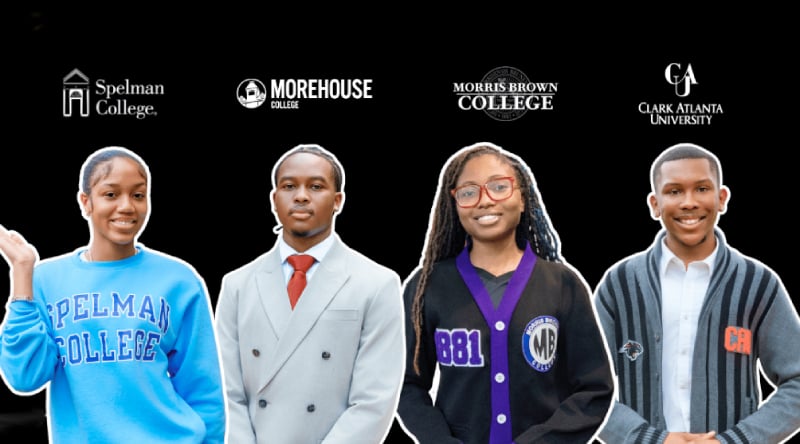ATLANTA — A new $50 million, 10-year scholarship commitment from the Arthur M. Blank Family Foundation could reshape how philanthropies support higher-education success, focusing less on tuition promises and more on the overlooked completion gap that keeps many students from graduating.
The foundation’s investment targets students at four of Atlanta’s Historically Black Colleges and Universities (HBCUs): Clark Atlanta University, Morehouse College, Morris Brown College, and Spelman College.
Beginning in 2026, the program is expected to assist nearly 10,000 students through so-called “gap scholarships” — funds that cover the final shortfall between financial aid and actual costs.
Focusing on Completion, Not Just Access
Education analysts have long noted that thousands of U.S. college students leave school within months of graduation because of unpaid balances as small as $500 to $2,000.
By directing resources specifically to students in good academic standing who have exhausted other aid, the Blank Foundation is aligning with a growing national trend toward completion-based philanthropy.
“Even a small financial gap can be the difference between walking across the stage or walking away,” said Fay Twersky, president of the Arthur M. Blank Family Foundation. “This is a material investment in hope.”
The approach follows research from the United Negro College Fund and the Institute for Higher Education Policy showing that last-mile aid can raise graduation rates by 10 to 15 percentage points at minority-serving institutions.
Economic Impact Extends Beyond Campus
Atlanta’s HBCUs already contribute $1 billion annually to the region’s economy. Graduates earn 57 percent more over their lifetimes than non-degree holders, a return that translates into higher spending power and tax revenues for Georgia. By increasing graduation rates, the initiative is expected to strengthen both local workforce pipelines and family stability across the state.
A Model for Other Foundations
Arthur Blank, co-founder of The Home Depot, said the gift reflects his foundation’s long-term relationship with Atlanta and its institutions. “We know Spelman, Morris Brown, Morehouse and Clark Atlanta are vital to Atlanta’s future, and we are deeply committed to supporting the students who will carry that legacy forward,” he said.
Policy observers say the 10-year commitment could serve as a blueprint for other donors. Rather than funding one-off scholarships or campus facilities, it ties philanthropic money to clear student outcomes and measurable economic impact.
“This signals a mature phase of philanthropy,” said Dr. Elena Miles, an education-finance researcher in Washington, D.C. “Foundations are shifting from access to completion — from getting students in the door to getting them across the finish line.”
Continuing a Legacy of HBCU Support
The Blank Foundation has a record of targeted HBCU investments — including a $10 million innovation lab at Spelman College, athletic field refurbishments across four campuses, and a hospitality credential program at Morris Brown. Together with the new scholarship initiative, these efforts underscore a strategy focused on long-term institutional capacity and student success.
Scholarship Broader Implications
If other major foundations replicate the model, gap scholarships could become a cornerstone of U.S. college-completion policy — particularly for low-income and first-generation students. For Atlanta’s HBCUs, the initiative offers not only financial relief but a signal that their students and missions remain central to America’s educational future.
For more information: www.blankfoundation.org

